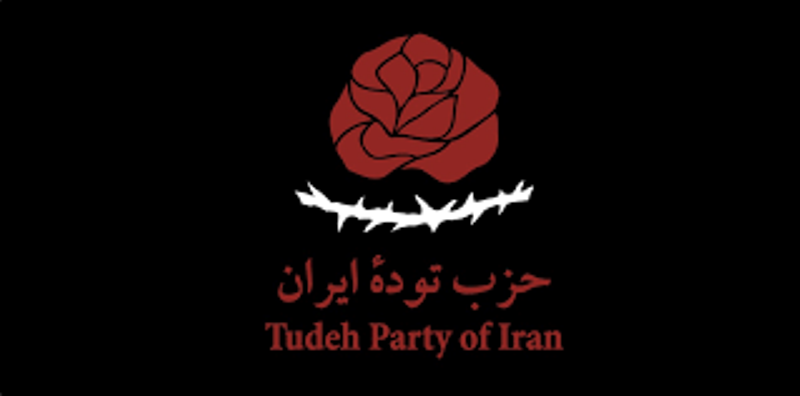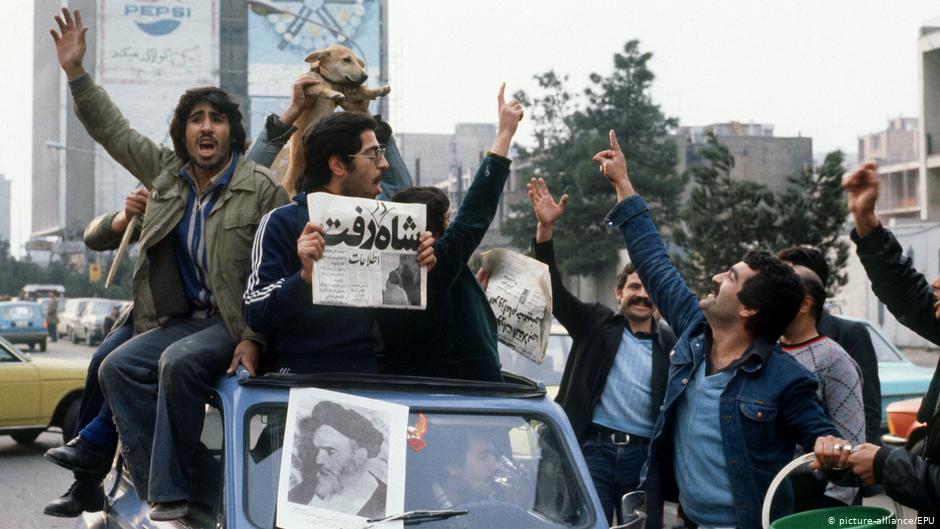Britain complicit in the crushing of Iran's Tudeh party

What sealed the fate of the Tudeh Party, the largest and best organised Iranian opposition party at the time of the 1979 Islamic Revolution? Founded in the 1940s, the Communist Party supported the Islamic Republic and remained largely unchecked until 1983, while other opposition groups and parties were destroyed by the new rulers.
By the winter of 1983, however, the time had come for the Tudeh Party as well: the Islamic regime arrested more than 1,000 of its members and up to 200 are said to have been executed. The party was banned and thus forced underground. Persecution of the communists spiked with the "confession" of Tudeh General Secretary Noureddin Kianouri on television in spring 1983, when he admitted that the party had acted against the interests of the Iranian people and spied for the Soviet Union.
The hit list
According to the South African Internet newspaper Daily Maverick, the information provided by Soviet KGB Major Vladimir Kuzichkin, who defected to Great Britain in 1982, played a central role in the destruction of the party and the execution of its functionaries.
The British secret service MI6 compiled a list from Kuzichkin's information, writes the Daily Maverick in its report published on 21 January 2020. The list included the names of Iranians who were allegedly working for the Soviet Union at the time. Kuzichkin is said to have been responsible for contacts with the Tudeh party in the USSR. His list ended up not only with the American secret service CIA, but also with those in power in Tehran.

Based on the recently released confidential correspondence of two high-ranking British diplomats – Nicholas Barrington and Chris Rundle – Daily Maverick describes the goal the British government was pursuing at the time. It quotes from the memoirs of Nicholas Barrington. At the time, he was head of the department for British interests in Tehran, which operated out of the Swedish embassy, as Iran and the United Kingdom had completely suspended diplomatic relations.
According to Barrington's memoirs, Kuzichkin's information simply "found its way" to the authorities of the Islamic Republic. No further details are given. The Daily Maverick writes that it was presumably the then British Prime Minister Margaret Thatcher, British Foreign Secretary Francis Pym and the then head of MI6, Colin Figures, who authorised the collaboration with the CIA to pass Kuzichkin's information to the Iranian regime.
"Lines should remain open"
The documents suggest that British policy at the time was more in tune with the new Iranian rulers than with the geopolitics of the Cold War or Soviet influence in Iran, writes Daily Maverick. According to the Daily Maverick, by spring 1983 at the latest, Barrington, other British officials and the British Foreign Office were aware that the Islamic Republic was using repression, torture and forced confessions. Chris Rundle, a senior British official in Tehran, informed the British Foreign Office in June 1983 of the mass arrests of Tudeh members and the impending executions.
"No evidence could be found in the 1983 files that British officials had done anything other than accept this severe repression," the South African Internet newspaper continues. The Barrington papers make clear that other European ambassadors were also of the opinion that the lines to Iran should remain open. Barrington also mentioned in his memoirs that "there was money to be made in Iran": "an important part of our work was maintaining British commercial links with Iran and promoting exports," the Daily Maverick quotes him.

The South African Internet newspaper also published a confidential document from May 1983 in which Oliver Miles, then head of the Middle East and North Africa Office at the British Foreign Office, commented on the "confessions" of Tudeh officials broadcast on Iranian television. In his view, these could be useful for Britain: "there could well be references to friendly parties in other countries which we might be able to make use of," such as the Tudeh party's relations with the Communist Party in Syria, Miles said. There might also be references to Libya and Algeria.
No worries about the Soviet Union's influence in Iran
According to the Daily Maverick, it is not clear from the documents whether Great Britain was concerned at the time about the Soviet Union's influence in Iran. Their "support" for the destruction of the Tudeh party was therefore not an episode of the Cold War.
The Islamic Republic had been relentlessly opposed to communism, the Internet newspaper writes. The arming of Iraq by Moscow during the Iraq-Iran War (1980-1988) was another point of contention between the two countries, as was the Soviet invasion of Afghanistan in 1979, which led to millions of Afghans fleeing to Iran.
The Soviets, in turn, had no interest in working to preserve the Tudeh Party. Daily Maverick quotes Barrington's letter to London in July 1982 – when KGB Major Kuzichkin was already in Britain. Moscow was prepared to give up the Tudeh Party, the diplomat wrote.
In May 1983, in a letter to the British Foreign Office, Barrington described the crushing of the Tudeh Party in Iran as " a major landmark has been reached in Soviet/Iranian relations and perhaps also in the history of Communist parties overseas," according to Daily Maverick.
Iman Aslani
